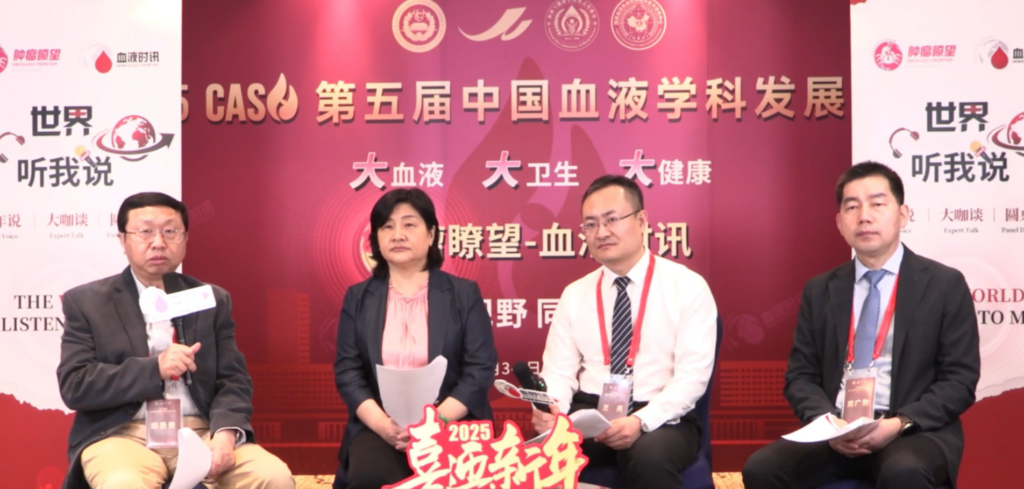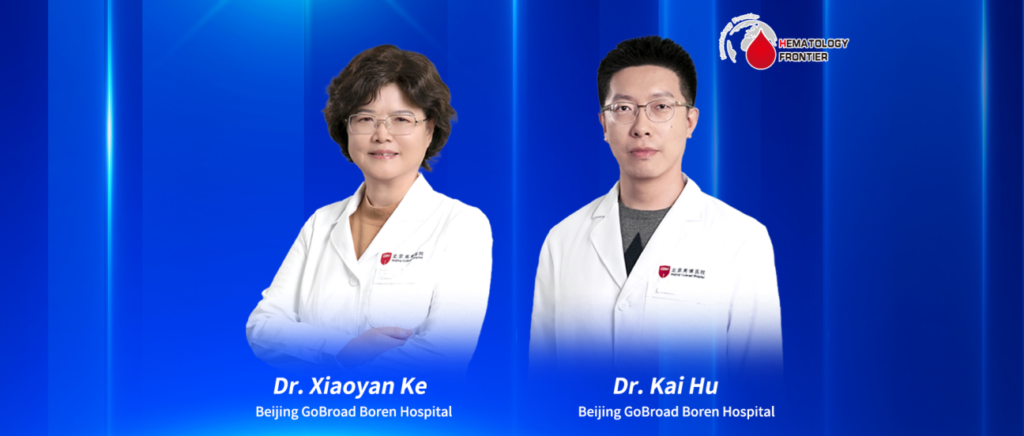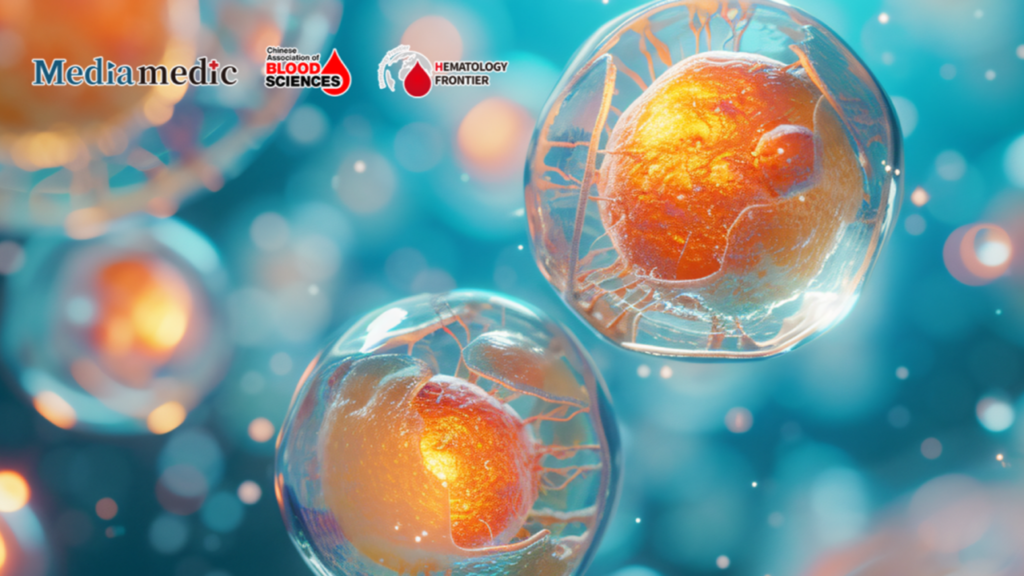Sequential CD20 CAR-T Therapy is Superior to Salvage Chemotherapy in B-cell Lymphoma Patients with CD19 CAR-T Treatment Failure
In recent years, with the application of CD19 CAR-T in refractory/relapsed B-cell lymphoma, we have encountered patients for whom CD19 CAR-T treatment is ineffective or those who relapse after a brief period of effectiveness. Beyond exploring factors that may affect the efficacy of CD19 CAR-T therapy, many doctors and researchers are actively seeking effective treatments for these patients. In June this year, Dr. Xiaoyan Ke and Dr. Kai Hu's team from Beijing GoBroad Boren Hospital published an article titled “Salvage CD20-SD-CART therapy in aggressive B-cell lymphoma after CD19 CART treatment failure” in the Frontiers in Oncology, providing new insights into treatment options for B-cell lymphoma patients who have failed CD19 CAR-T therapy.
Blood Science Update: Gut Microbiota in Benign and Malignant Hematopoiesis
This article, published in the esteemed journal Blood Science, highlights the intricate role of gut microbiota in hematopoiesis, encompassing its influence on both benign and malignant conditions. As a peer-reviewed platform at the forefront of clinical and experimental hematology, Blood Science is recognized for its impact on advancing our understanding of molecular biology, physiology, and clinical applications. Authored by Professor Tao Cheng from the Institute of Hematology & Blood Diseases Hospital, Chinese Academy of Medical Sciences & Peking Union Med-ical College, Professor Hui Cheng from the Institute of Hematology & Blood Diseases Hospital, Chinese Academy of Medical Sciences & Peking Union Med-ical College and Professor Pengxu Qian from the First Affiliated Hospital, Zhejiang University School of Medicine,this work provides crucial insights into the therapeutic implications of gut microbiota for hematological health and disease management.
Blood Science Update: Epigenetic Modifications in Hematopoietic Ecosystem: A Key Tuner from Homeostasis to Acute Myeloid Leukemia
Blood Science, an authoritative journal in the fields of hematology and oncology, has been at the forefront of advancing knowledge in blood-related disorders. Dedicated to publishing pioneering research, the journal provides a platform for understanding the complexities of blood ecosystems, from cellular mechanisms to clinical implications. By fostering collaboration and disseminating groundbreaking studies, Blood Science has shaped the way researchers and clinicians approach hematological health and disease.
Blood Science Update: New Insights into the Endothelial Origin of the Hematopoietic System
This article, published in the journal Blood Science, elucidates groundbreaking advancements in understanding the endothelial origins of the hematopoietic system. As a leading platform in clinical and experimental hematology, Blood Science continues to publish high-impact research that transforms molecular biology and physiology. Authored by Professor Yu Lan from the Key Laboratory for Regenerative Medicine of Ministry of Education, Institute of Hematology, School of Medicine, Jinan University and Professor Bing Liu from the Fifth Medical Center, Chinese PLA General Hospital, this study delves into the complex cellular evolution of hemogenic endothelial cells (HECs), the molecular mechanisms driving endothelial-to-hematopoietic transition (EHT), and the striking parallels between human and mouse systems. These insights mark a significant leap toward regenerative medicine and innovative treatments for hematological disorders.
Major Trial Challenges Role of Auto-HCT in Mantle Cell Lymphoma
New findings from the ECOG-ACRIN EA4151 Phase 3 trial, published in Blood on November 25, 2024, could change clinical practice for mantle cell lymphoma (MCL).For years, autologous hematopoietic cell transplantation…
Major Trial Challenges Role of Auto-HCT in Mantle Cell Lymphoma
New findings from the ECOG-ACRIN EA4151 Phase 3 trial, published in Blood on November 25, 2024, could change clinical practice for mantle cell lymphoma (MCL).For years, autologous hematopoietic cell transplantation…
Blood Science Update: The Dual Role of BCL11B in T-Cell Malignancies
Blood Science continues to lead the way in elucidating complex biological processes and their implications in disease. In this insightful review article, “Dual role of BCL11B in T-cell malignancies,” Grzegorz K. Przybylski, Julia Przybylska, and Yangqiu Li explore the paradoxical functions of the B-cell CLL/lymphoma 11B (BCL11B) gene in T-cell development and malignancies.
Blood Science Update: Versatility of Megakaryocytes in Health and Disease
This article, published in the esteemed journal Blood Science, explores the remarkable adaptability of megakaryocytes (MKs) in various physiological and pathological processes. Renowned for its pioneering work in hematology, Blood Science has showcased groundbreaking insights into the dynamic roles of MKs beyond their traditional function in platelet production, offering a deeper understanding of their involvement in immune modulation, aging, and hematological diseases.
ASH 2024 | Dr. Shanshan Pei : First Discovery of TFG-ROS1 as a Rare Driver Gene in Myeloid Leukemia with Promising ALK/ROS1 Inhibitor Efficacy
From December 7 to 10, 2024, the 66th Annual Meeting of the American Society of Hematology (ASH) convened in San Diego, bringing together leading experts to discuss pivotal advances in hematology. Among the highlights was a groundbreaking study by Dr. Shanshan Pei and his team from The First Affiliated Hospital,Zhejiang University and Liangzhu Laboratory. This study (Abstract #38), selected for oral presentation, identified the rare fusion gene TFG-ROS1 as an oncogenic driver in human myeloid leukemia. Furthermore, the team demonstrated effective treatment strategies using ALK/ROS1 inhibitors, achieving remission in a patient with refractory leukemia after multiple treatment failures. This study exemplifies the “bench-to-bedside” paradigm in precision medicine, showcasing its transformative potential for cancer care. Below is an in-depth exploration of the study and exclusive insights from Professor Pei.









